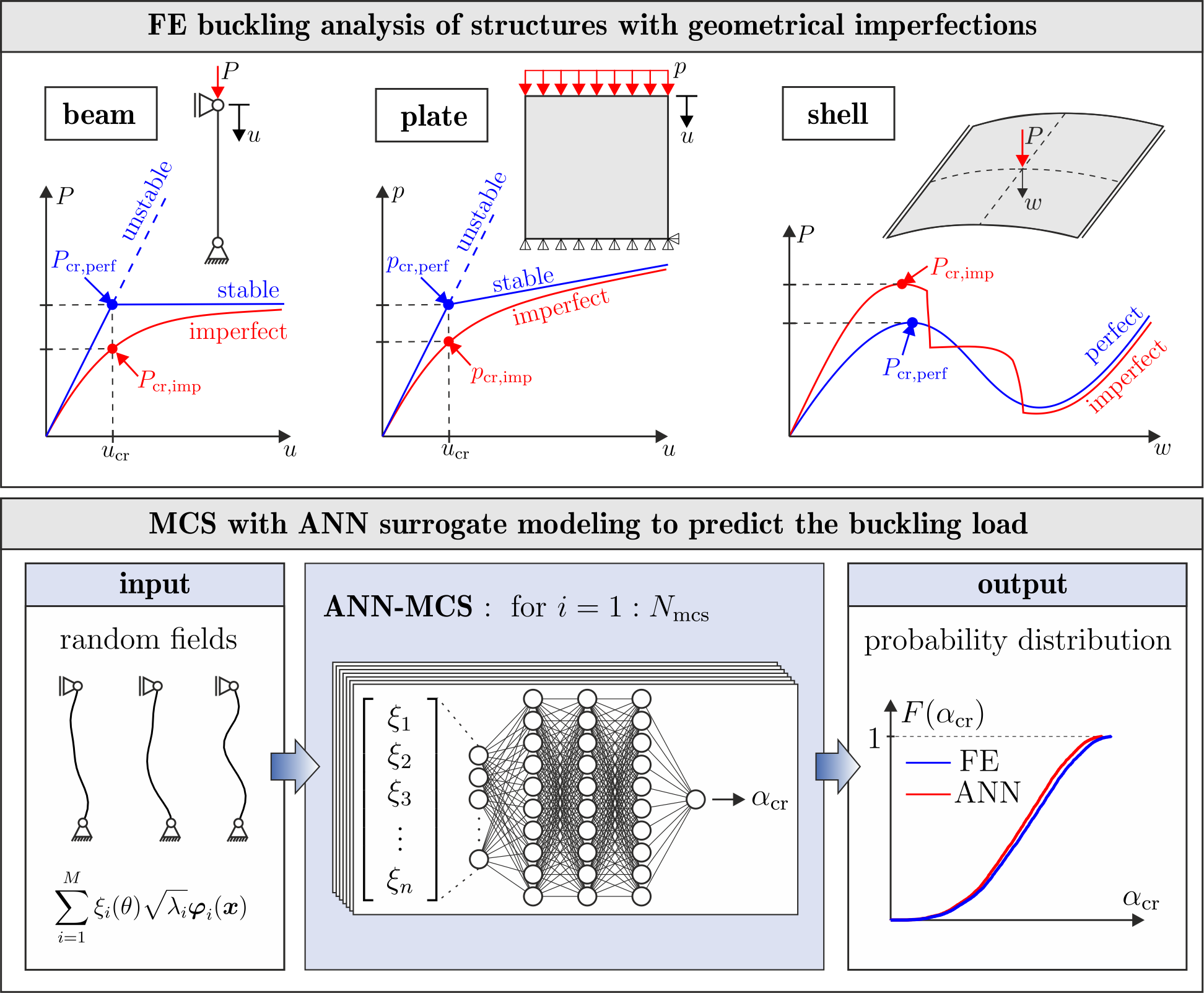Design and Optimization of Shell Structures with Polymorphic Uncertain Data
The prediction of buckling loads for slender and thin-walled structures under compression loading is important for the structural reliability assessment. The presence of random geometrical imperfections reduces the buckling load and is uncertain. In the framework of a probabilistic buckling analysis, the geometrical imperfections are modeled as correlated random fields and applied on the Finite-Element (FE) model. The buckling analysis is then computed by a Monte Carlo Simulation (MCS). The probabilistic approach in structural engineering demands the assurance of a low probability of failure and thus, high accuracy in the calculation of the probability distribution. The resulting high computational cost of the Monte Carlo Simulation can be reduced with a surrogate model of the FE simulation. The development of an effective surrogate model for random fields is challenging, because of the high dimensional input. An artificial neural network (ANN) surrogate model is used, to predict the buckling load of structures considering random fields of geometrical imperfections as input. The training procedure is based on random fields and the corresponding buckling load samples obtained from FE simulations. The trained ANN surrogate model is finally applied within a MCS-loop, yielding the probability distribution of the buckling Load.

Contact Person
Projektleitung: Dr.-Ing. Marc Fina
Projektmitverantwortliche: Prof. Dr.-Ing. Steffen Freitag, Prof. Dr.-Ing. habil. Werner Wagner
Projektbearbeitung: M.Sc. Maximilian Schweizer

